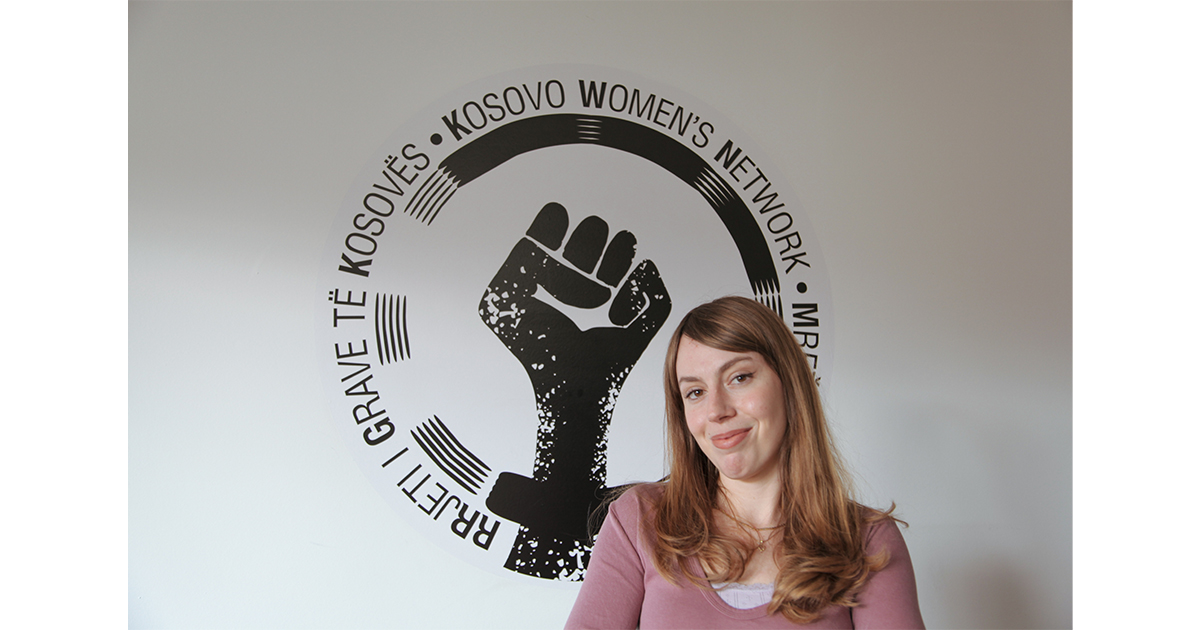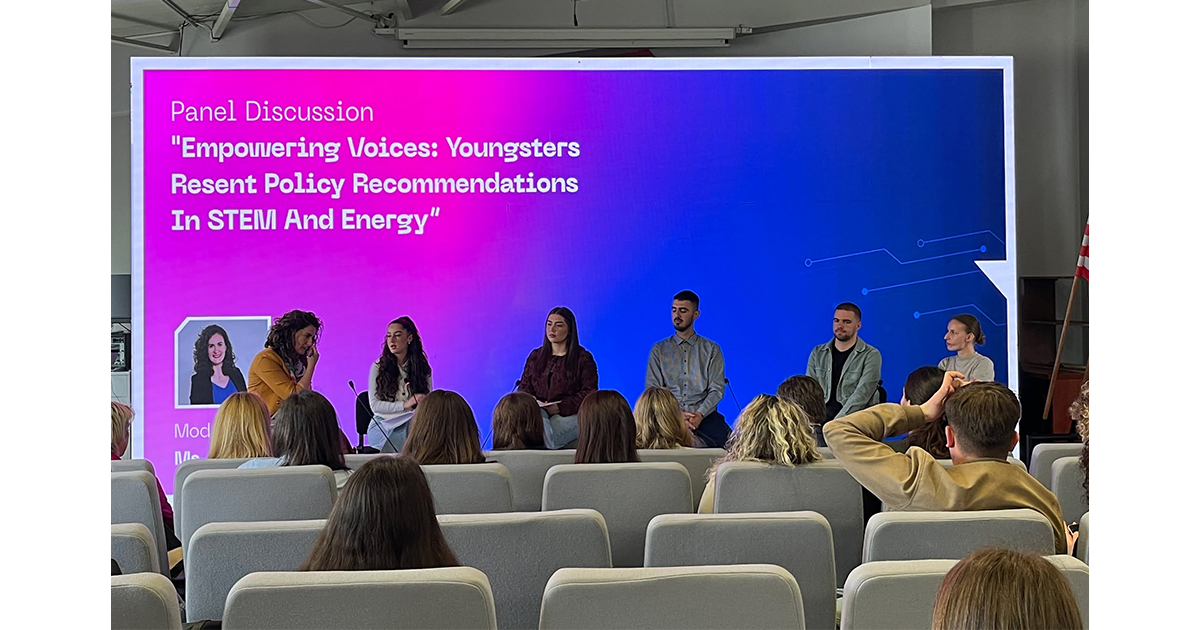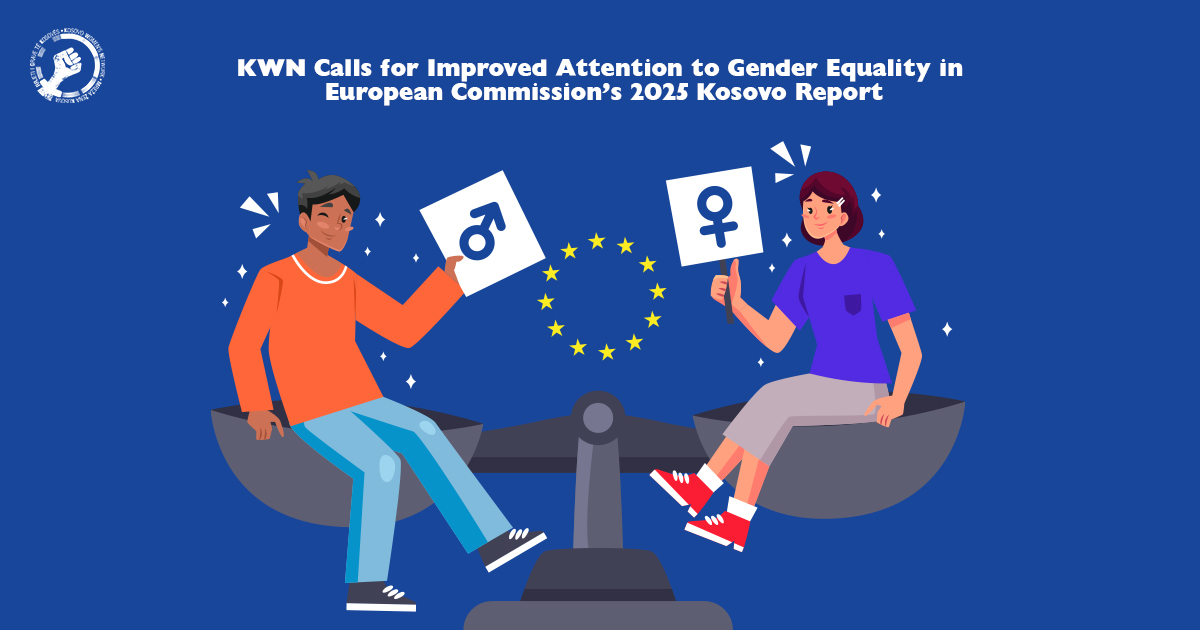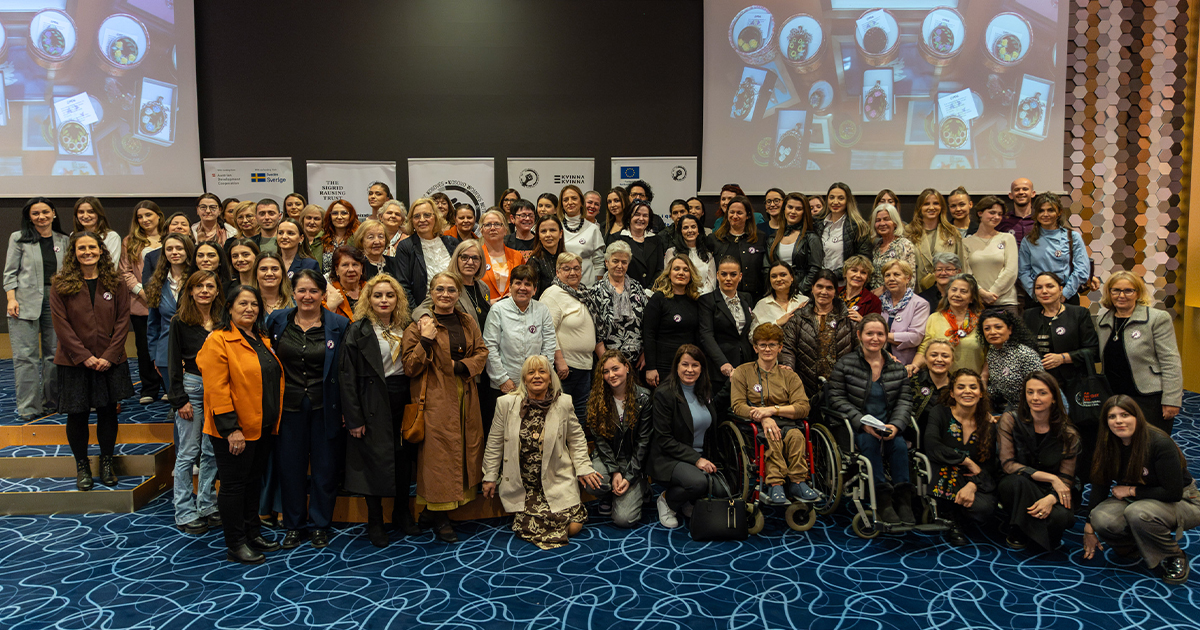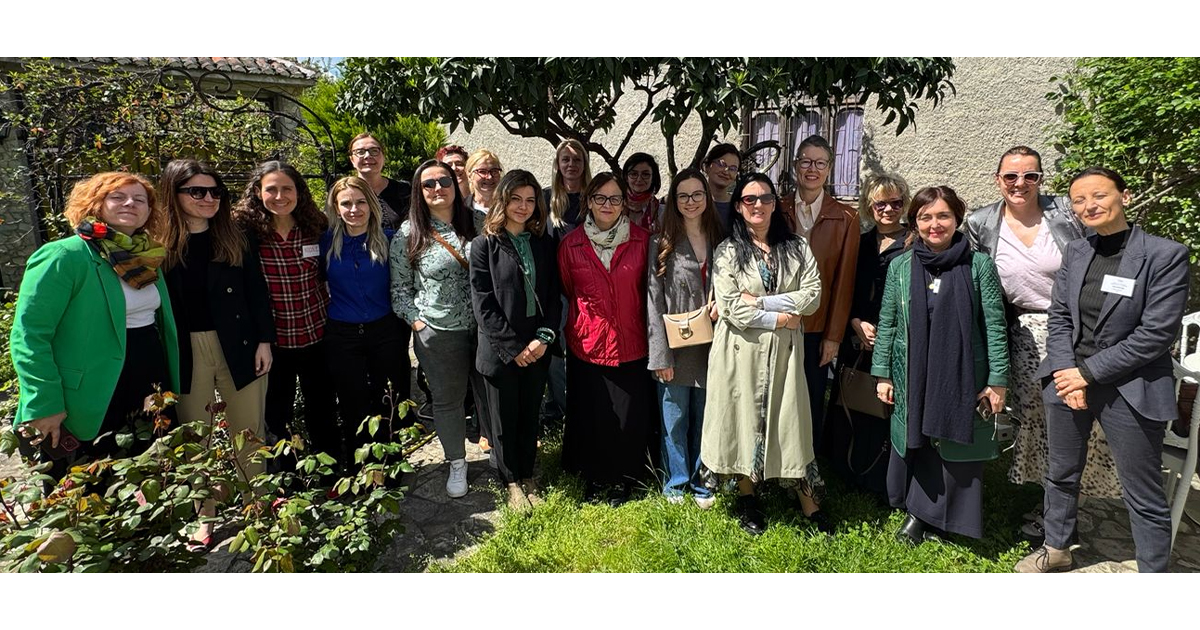In Jan., students from the University of Vienna and European Inter-University Centre for Human Rights and Democratization conducted a study visit in Kosovo. During this visit, on Jan. 19, the students met with Igballe Rogova, Executive Director of the Kosovo Women’s Network (KWN) at Hotel Sirius in Prishtina.
They demonstrated an interest in learning more about the experiences of women’s rights activists in Kosovo, recent developments, human rights challenges, peace and security, as well as obstacles and opportunities in the future.
Ms. Rogova initially spoke about activism during the 1990s in Kosovo, for the ‘Sisters Qiriazi’ Association. Even during the war in Kosovo, this Association did not cease its activities in helping Kosovars in refugee camps.
Attendees also heard about the history of the women’s movement in Kosovo, how the first women’s rights organizations in Kosovo were founded and about the history and work of KWN. Rogova described KWN’s investigative reports on gender-based violence and sexual harassment in Kosovo, as well as initiatives and research monitoring the implementation of United Nations Security Council Resolution 1325 on Women, Peace and Security in Kosovo.
The students expressed their gratitude for the meeting and said that this was one of the most informative lectures that they had heard during their stay in Kosovo.


